Carbon Reduction Fund
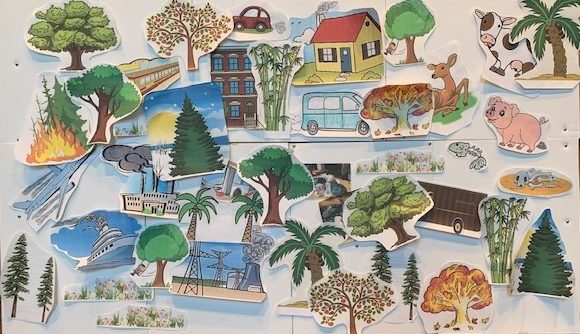
The Loretto Community Carbon Reduction Fund receives donations from anyone who wishes to support projects within Loretto or projects connected to Loretto which help heal and balance Earth’s natural ecosystems.
The fund was established in honor of Sister Anthony Mary Sartorius who, throughout her years as Motherhouse service coordinator, planted countless trees, bushes and flowers at Loretto Motherhouse.
How will the funds be used?
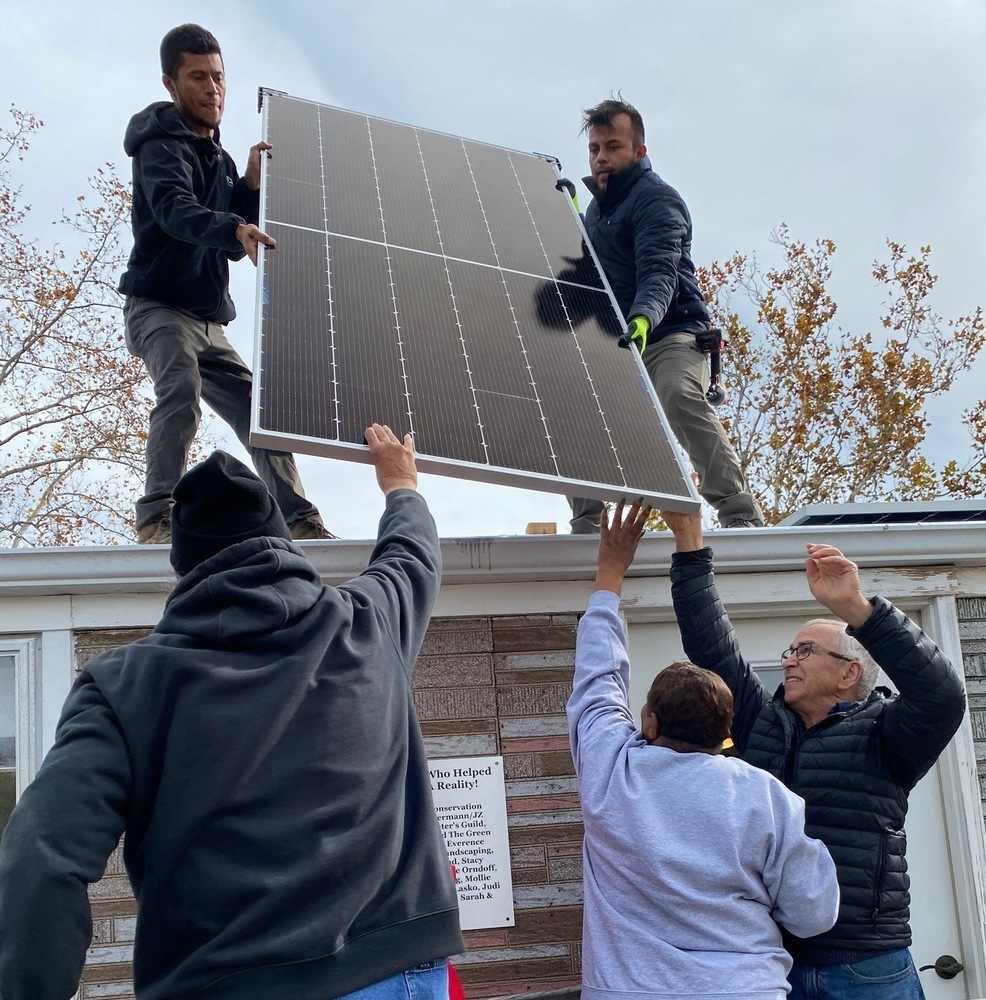
Photo by Jeff Heie
Donations to the Carbon Reduction Fund will be used for Loretto or Loretto-related projects which:
1. Prevent the output of greenhouse gas (ghg) emissions into the atmosphere (e.g. the installation of solar panels, or a charging station for an electric car),
2. replenish Earth by sequestering ghg emissions from the atmosphere (e.g. the planting of trees and deep-rooted plants and grasses),
3. provide education on carbon emission / ghg reduction and prevention,
4. secure infrastructure, equipment, and support needed for the health of plantings (e.g. irrigation, fencing, tools, an arborist, etc.)
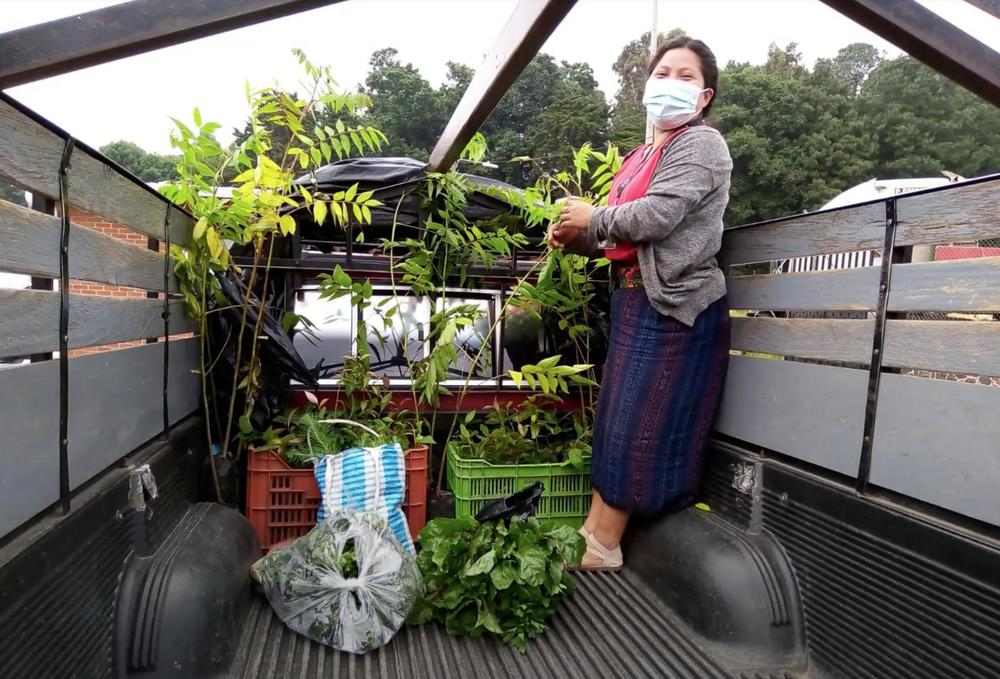
To contribute, click the “Donate” button below and select “Loretto Carbon Reduction Fund” from the dropdown menu on the following page.
To read more about carbon emissions, how to prevent them, and recommended donations, click the topics below.
How can I reduce carbon emissions?
Reducing our dependence on fossil fuels is crucial in order to effectively address climate change. Because it takes time to significantly reduce our dependence, however, we can also take short term measures to balance the negative impact of fossil fuels with something positive like a project that reduces carbon emissions. Until it’s possible to completely eliminate all carbon emissions from our own lifestyles, we an actively participate in drawing down emissions or preventing them in other areas of society.
To achieve balance, we have to reduce the amount of carbon released and increase the amount of carbon captured and stored.
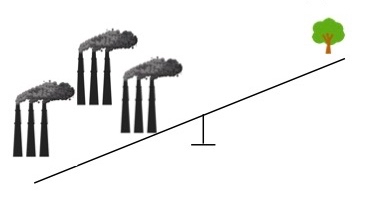
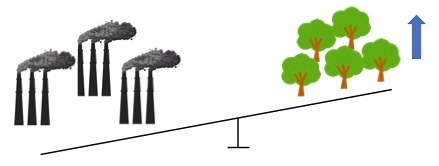
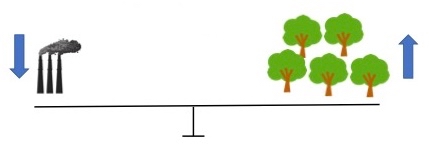
Why does Loretto use the term “carbon reduction” rather than “carbon offset”?
In the general public, the purchase and sale of carbon offsets occur in carbon offset markets (either voluntary or compliance markets). While the term “carbon offset” in previous years was used in a rather general way, today the term refers to the commodity in these regulated carbon markets around the globe. The members of the Loretto Carbon Reduction Fund do not want the Loretto Community to become involved with these markets, either intentionally or accidentally.
Also, carbon offset criteria are very specific. For example, the projects must be quantifiable and permanent, including third party verification. Our fund is available for more general use and does not need third party verification.
This article from EcoWatch offers a good explanation of the complications around carbon offsets.
How can I address carbon emissions from necessary travel?
There are many online calculators which use a variety of criteria for calculating what it takes to account for carbon emissions from travel. To keep things simple, we suggest using the following chart as a basic guide.
Flight Emissions
| Flight Length | Mileage/Example | Approx. Carbon Emissions | Suggested Donation $50/ton* |
| Short | <400 miles Ex: Louisville-Atlanta, roundtrip | 1/3 ton CO2 | $17 |
| Medium | 400-1500 miles Ex: Denver-Louisville, roundtrip | 1 ton CO2 | $50 |
| Long | 1500-3000 miles Ex: Louisville-Los Angeles | 1.5 tons CO2 | $75 |
| Extended | >3000 miles Ex: Denver – London | 4.5 tons CO2 | $225 |
Car emissions
Some carbon calculators provide very specific information based on the make of your car, the year your car was manufactured, your driving habits, etc.
To keep things simple, we suggest that you calculate your emissions from car travel by keeping track of how many gallons of gas you use.
- 100 gallons of gas = approximately 1 ton of carbon emissions and we suggest a donation of $50/ton of carbon*
- 100 gallons of gas – $50 donation
- 50 gallons of gas – $25 donation
- 25 gallons of gas – $12 donation
You can also use this handy household carbon footprint calculator.
* Why are we suggesting $50/ton when some programs suggest a much lower donation?
Our suggested donation takes into account the social cost of carbon, which includes the global economic damage caused by carbon emissions. Extreme weather events, for example, cost businesses, families, governments and taxpayers billions of dollars due to the destruction of property. Other devastating impacts of climate change include the spread of disease, sea level rise, and increased food insecurity, all of which have negative economic consequences.
This article from the Environmental Defense Fund provides an overview of the social cost of carbon.
I don’t travel much so do I still produce carbon and other greenhouse gas emissions?
Yes! Carbon emissions are part of daily life even without long trips. An individual in the US is responsible for about 20 tons of carbon emissions annually from electricity, food production, clothing choices, cooking and heating, mowing lawns, travel, etc. Compare our 20 tons of emissions/person with the world average of 4 tons/person.
Did you know…
Tons of carbon Earth can absorb per person per year with our current global population: 2 ½
Tons of carbon Earth can absorb per person per year with the projected global population: 1 ½
Current annual carbon emissions per person in the US: 20 tons
Current annual carbon emissions per person in India: 1.5 tons
World average of current annual carbon emissions per person: 4 tons
50% of the world’s carbon emissions are created by 11% of the world’s people
Source: In time for tomorrow? The Carbon Conversations Handbook
Flight Facts
One round-trip flight between New York and California generates about 2 ¼ tons CO2 which is about 20 percent of the greenhouse gases that your car emits in a year.
The longer the distance, the more efficient flying becomes, because cruising requires less fuel than other stages of flight so it’s better to fly cross-country than to drive solo. If you’re taking a short trip, however, it may be better to drive.
Flying nonstop can help. The more times you take off, the more fuel you use. According to a 2010 report from NASA, about 25 percent of airplane emissions come from landing and taking off. That includes taxiing, which is the largest source of emissions in the landing-takeoff cycle.
Some airlines are more efficient than others so take fuel efficiency into account when you buy your ticket. Here is the latest airline fuel efficiency rankings.
From New York Times article “Flying Is Bad for the Planet. You Can Help Make It Better.”
Resource list
This is a packed but very thorough, up-to-date summary of what a carbon footprint is and what typically contributes to it in the US.
This story map is visually very interesting and does a good job explaining the state of Earth.
This is a good article about the pros and cons of carbon offsets from the NRDC (Natural Resources Defense Council).
For questions or more information, please contact us through the form below.
Our misuse of Earth’s generosity, while improving conditions for many, is not improving them for all and is fraying the web of life. The most vulnerable among us, those least responsible for this global threat, suffer the impacts of a warming climate unfairly and unjustly.
COP23 (UN Climate Change Conference) Interfaith Statement
